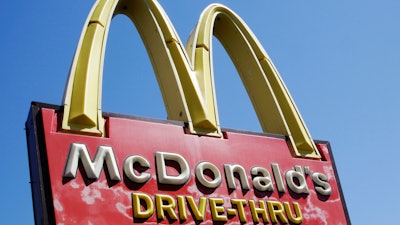
A banner year came to a bumpy end for McDonald's, which lost sales in many markets due to the war in Gaza.
Global same-store sales – or sales at restaurants open at least a year – rose 3.4% in the October-December period, well below the 4.7% increase Wall Street was expecting, according to analysts polled by FactSet.
Customers in the Middle East were angered after McDonald's Israel – which is operated by a local franchisee -- announced in October it was providing free meals to Israeli soldiers. In response, some franchisees, like McDonald's Oman, announced donations to relief efforts in Gaza.
Last month, McDonald's President and CEO Chris Kempczinski warned that "misinformation" in the Middle East and elsewhere was hurting sales. In addition to customer boycotts, McDonald's has had to temporarily limit store hours or close some locations due to protests.
"We abhor violence of any kind and firmly stand against hate speech, and we will always proudly open our doors to anyone," Kempczinski said in a LinkedIn post.
It was an unexpected end to an otherwise strong year for the burger giant, which said global sale-store sales rose 9% in 2023. Viral marketing hits, like last spring's Grimace shakes, and upgraded menu items helped to boost full-year revenue by 10% to nearly $25 billion.
McDonald's wasn't the only U.S. company seeing backlash from the war in recent months. Starbucks said last week that it faced boycotts in the Middle East and elsewhere because of its perceived support for Israel.
McDonald's revenue rose 8% to $6.4 billion in the fourth quarter, meeting analystexpectations. Net income was up 7% to $2 billion.
Excluding one-time items, such as $66 million restructuring charge, the company earned $2.95 per share. That beat analysts' forecast of a $2.83 per-share profit.
McDonald's Corp. shares were flat in premarket trading Monday.






















